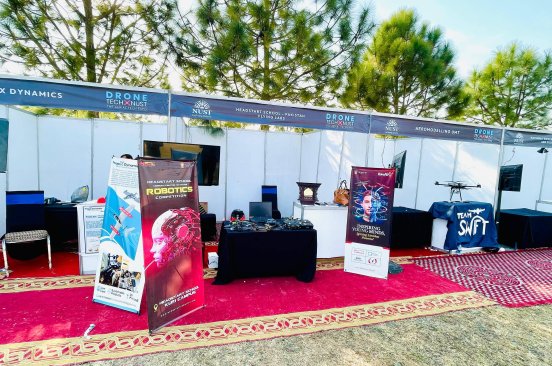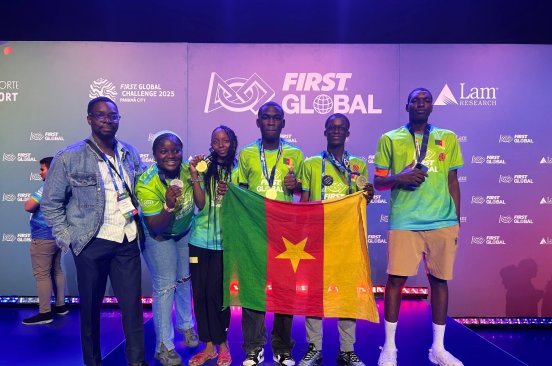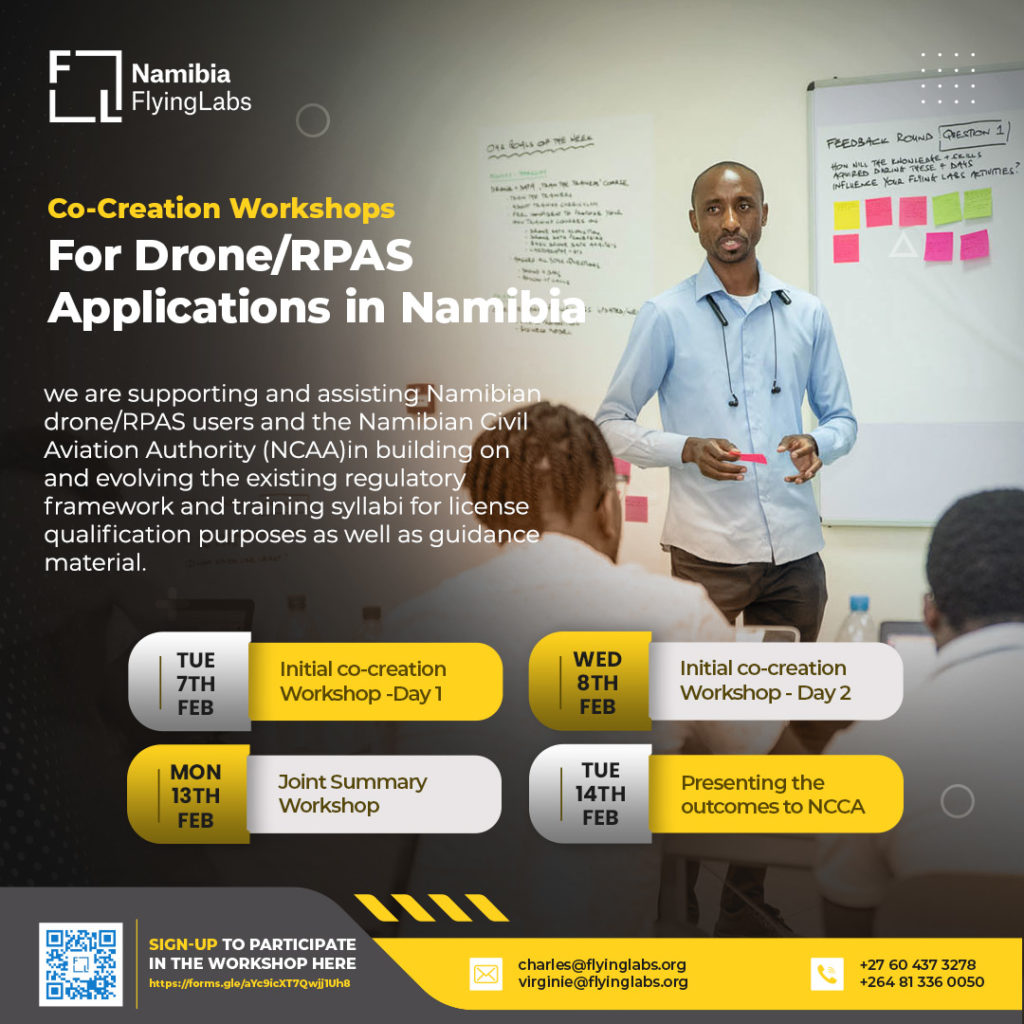
Creating Adapted Airspace for Drone Operators with Civil Aviation Authorities
Namibia Flying Labs kick off a new learning project that aims to marry the needs of drone operators and CAAs by evaluating existing regulations.
December 7th, 2022
Through various projects around the world, the Flying Labs Network and WeRobotics continue to prove that drones are powerful tools for social good. With Flying Labs in over 35 countries, we continue to work on projects in the agriculture, climate action, development, education, health, and humanitarian sectors, respectively. We embody these famous words by Bill Gates: “Drones overall will be more impactful than I think people recognize, in positive ways to help society.”
However, our work has not come without challenges and learning opportunities. Therefore, we are excited to kick off a new learning project that aims to marry the needs of drone operators and civil aviation authorities by evaluating existing regulations.
Drones overall will be more impactful than I think people recognize, in positive ways to help society.
Presently in Namibia, the existing Namibia Civil Aviation Regulations (NAMCARs) neither comprehensively represent drone user needs nor optimally cater to strategic unmanned aircraft traffic management. There is also a lack of standard training syllabi for all remote pilot training, and the newly established licensing is not internationally recognized. It is on this basis that this learning project was born to conduct current state and landscape analyses; by gaining appreciation and understanding of Namibia’s current drone regulations, the most significant challenges, stakeholder needs, as well as use cases/applications, followed by inferring the rules from other countries, to capture lessons learned and identify leading practices to help inform the Namibian Civil Aviation Authority (NCAA).
The learning project, started in late November 2022, will run for approximately six months. We are already excited to see the results that will be shared widely with our colleagues of the Flying Labs Network; also, through this learning project, we hope to create a support and collaboration framework with CAAs that can be adopted by our colleagues on the African continent and beyond. To lay the foundation for this more expansive view and as part of our learning project, we are creating a benchmark analysis on training syllabi and drone pilot certification within the countries of the Flying Labs Network. For this, we invite our colleagues from all Flying Labs in Africa, Latin America, and Asia/Pacific to share their local knowledge with us and contribute to our learning project with their inputs on training syllabi and drone pilot certification.
We also call on Namibian drone operators from all backgrounds to join us and share their experiences and valuable input through stakeholder interviews and a series of co-creation workshops we are organizing in early February 2023 in Windhoek. We believe that together we can create more adapted airspace and generate important learnings and ways forward for Namibia and the entire Global South.
Sign up here to participate or learn more here.
Our ultimate objective is to ensure the continuous development of Namibian drone regulations and training syllabi based on landscape analyses. As aforementioned, we also plan to scale this fantastic work to more countries across our continent and the globe. The project is in partnership with the NCAA, Deloitte, and WeRobotics.
This project is very close to our hearts here at Namibia Flying Labs, and we, therefore, invite you, Namibia drone users and Flying Labs Network members, to please join us by clicking the link below. As the African proverb says, “If you want to go fast go alone, but if you want to go far go together;” so let us fly higher—and safer—than ever before together!
Category(s)
Recent Articles
View All »

Team Cameroon's Road to Victory at the First Global Robotics Competition 2025

